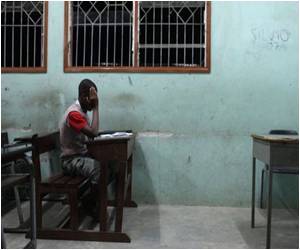
The vast majority of adults (95 percent) say schools should take action if a student makes another student afraid for his/her physical safety. Eighty-one percent said schools should intervene when someone humiliates or embarrasses another student and 76 percent call for intervention when someone spreads rumors.
But only 56 percent said isolating a student socially should prompt school intervention.
"The key finding from this poll is that adults don't see behaviors across the bullying spectrum as equivalent," says Matthew M. Davis M.D., M.A.P.P., director of the C.S. Mott Children's Hospital National Poll on Children's Health.
"This is concerning because isolating a student socially is considered to be a form of bullying, and a dangerous one," says Davis, associate professor of pediatrics and internal medicine at the U-M Medical School and associate professor of public policy at the Gerald R. Ford School of Public Policy.
"Isolating a student socially may be linked to episodes of school violence and also teen suicide."
Advertisement
In the poll, nearly all adults (90 percent) say threatening another student's physical safety is bullying and 62 percent also say embarrassing or humiliating a student is definitely bullying.
Advertisement
Since the shooting at Columbine High School in 1999, and with subsequent school shootings and teen suicides linked to bullying, public concern about bullying has grown considerably in the U.S. In the last several years of the Poll's 'Top 10' list of greatest child health concerns, bullying has been rated by the public as a major problem for kids. The latest national data from the Youth Risk Behavior Survey in 2011, reported by the national Centers for Disease Control and Prevention, indicate that 20% of high school students report that they have been the victims of bullying.
"As school starts, this is the perfect time of year to have conversations about how each school can find solutions to the problems of bullying and address this important childhood health problem," says Davis.
Source-Eurekalert










